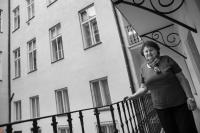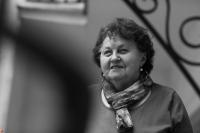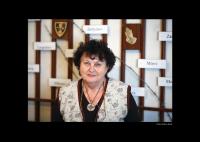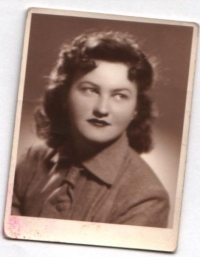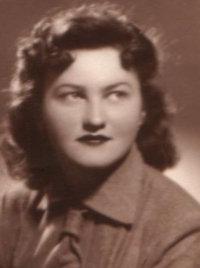When I was saying goodbye to Choc in the death row - I felt then that I really needed my mom the most.

Stáhnout obrázek
Eva Dušková, née Vokálová, was born on November 11, 1931 in Prague into the family of the builder and architect František Vokál (died 1943). After the war his wife Ludmila rented out the basement of their villa to technical students studying in Prague. Through them, Eva became acquainted with Miloslav Choc, a student and functionary of the national socialists. Choc crossed the borders in the spring of 1948, with the intention of emigrating. He later decided to join the resistance and he returned entrusted with several missions. After the May murder of Augustin Schramm, an important functionary of the partisan movement and Security Major, Choc was accused of the murder, and arrested in Olomouc on the 2nd of June. Shortly before his arrest, State Security also arrested his girlfriend‘s family. Choc was sentenced to death and executed on the 11th of February 1949. Eva and Ludmila Vokálová were also sent to prison as associates. Eva spent five years in juvenile detention centres in Hradec Králové, Kostelec nad Orlicí (based in Doudleby), in the juvenile girls‘ detention centre in Lnáře and the centre in Zámrsk. Her mother was not released from prison until 1960, dying soon after from the effects of the long imprisonment and slave-like working conditions.
